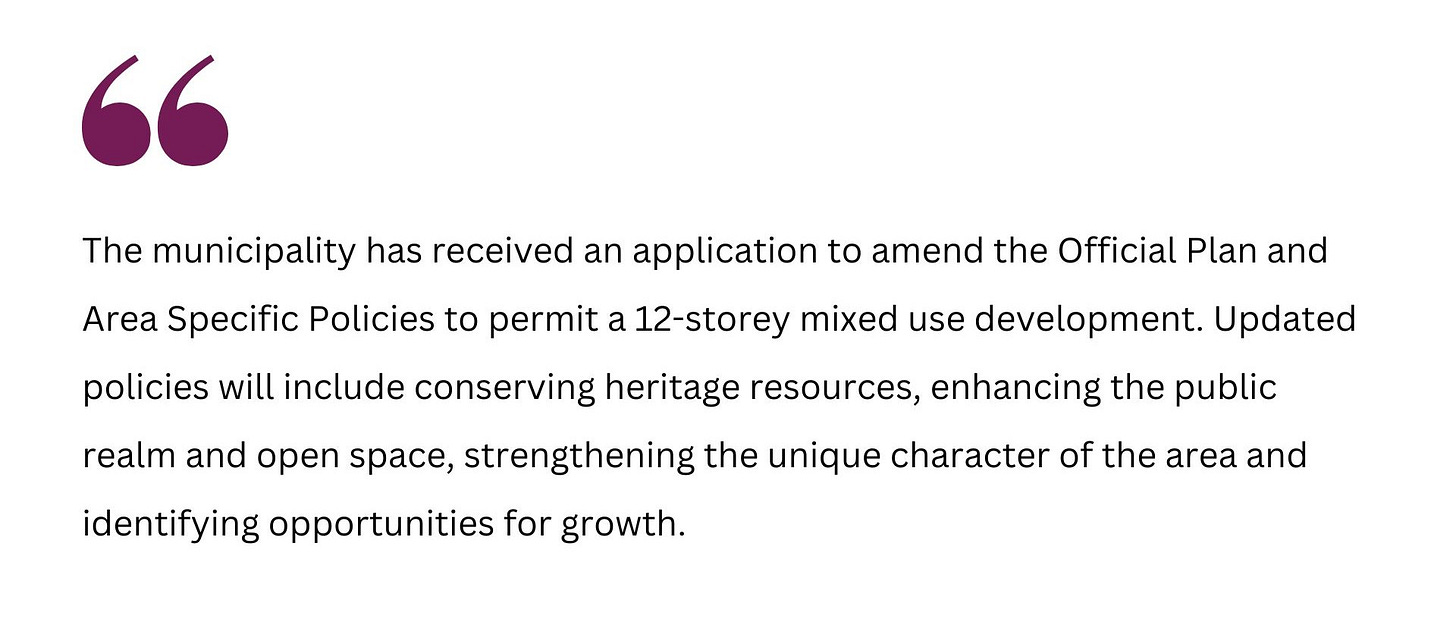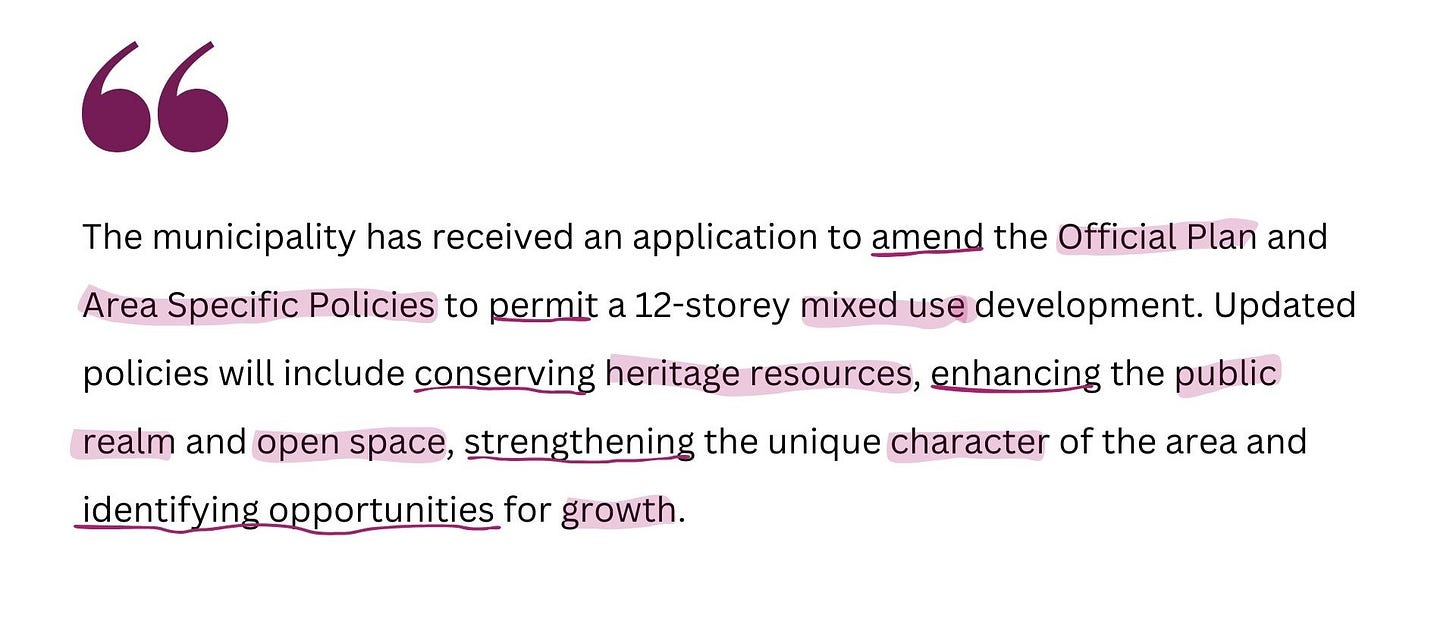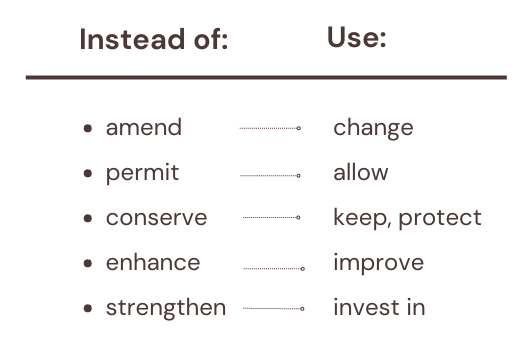Does jargon have an unfair reputation?
Make it work for you!
I’m not opposed to jargon. Surprised? Me too, kind of. But when I really started to think about it, jargon has its place. I’m not talking about the workplace buzzwords, bluster, euphemisms, and cliches that make us all roll our eyes (before we resume using them.) I’m talking about the specialist, technical language that we use every day, with our colleagues, on the job.
Professional jargon serves a purpose. It’s precise, in-house communication that conveys our expertise and builds collegiality and trust. When I know my readers are mostly internal, for example, I don’t worry too much about replacing or explaining technical terms. But I do get rid of the clutter, the empty, meaningless words and phrases that get the way and don’t provide value (also known as “garbage” language).
Nonetheless, it’s still important to consider where you can simplify and clarify your writing. Even your colleagues only have so much time to read. Clear, direct, active language help them do their jobs more easily. So it’s also important to eliminate the so-called throat-clearing that professionals often spend too much time on before getting to their point; if you’re going to assume that your fellow professionals understand certain terms and acronyms, then you should also assume that they understand the caveats, qualifications, and exceptions involved in your subject.
Professional jargon only becomes a major problem when we let it sneak into the reports, plans, memos, emails, and other documents that external readers are relying on. Then our specialist, technical terms start to sound more like “garbage” language to a general reader.
“Garbage” or professional jargon?
Garbage language can leave you confused or frustrated. It’s unclear what action you should take or how to use the information provided. You might have to go looking elsewhere for a definition, or you may just skip over it altogether. It can leave the impression that the author doesn’t really know what they’re talking about or has something to hide.
As planners, it can be hard to be direct and clear. We use garbage words out of habit or because our work environment encourages it. It might feel safer. But relying too much on vague, meandering, elusive phrasing creates questions for the reader and erodes trust in your expertise. Sometimes it can even make the reader feel like you’re pushing them away or don’t really want to involve them in the discussion.
Specialist, technical language is clear and precise if you’re the intended reader. As someone who shares the author’s bubble, you probably know enough about the subject to understand what they’ve written, or figure it out quickly enough. If you’re a planner, jargon like “adaptive reuse”, “complete communities”, “missing middle”, and “character” is commonplace, and necessary. A zoning examiner might talk about the length of a “flankage lot line” and “BCIN qualifications”. A designer or architect might refer to a “building envelope” and “the urban fabric”. These terms make sense to other professionals in related fields.
Even so, various practitioners may have a different understanding of a term. It’s important to recognize terms, including acronyms*, that could impede comprehension. The reader may not have the same refined training, or the same level of interest in a project. They still need to be informed and not get sidetracked by your use of jargon.
Don’t hesitate to use the language of your profession when you have to, and when you know your audience. When you’re sure that your readers are internal, that they are familiar with your profession or project, that they have some interest and prior knowledge, professional jargon is usually just fine.
*A note on acronyms. Remember that even your colleagues may have a different skillset, attend different meetings, play different roles – and as a result, may need you to explain your acronyms! Have you ever been in a meeting where the speaker starts speaking in code? It’s not helpful. Think about how you respond: you may stop listening because you’re thinking about what the acronym stands for, you may get worried that you’ve missed something important, or you may feel excluded and hesitant to participate in case you got it wrong. These are not reactions you want any reader to have to your writing!
Break the cycle!
The source of many of our problems as planners comes from cutting and pasting text from an internal document into a public-facing one. It’s important to recognize the jargon you’re using and then shift your style for your new audience. Replacing or explaining terms can be a huge help. You don’t want them to reach their own, often negative, conclusions about your project, which can stem from a lack of understanding. Here’s what Irena Kohn, Editor at NRU Publishing, has to say.
Be aware when you're using often-cited terms or concepts. Don't just assume: “Okay, well, this is what people in the field call it, and everyone knows what it means”. Similar to the counsel to avoid using cliches: don't just use terms and concepts that you hear out there all the time as if their meaning is apparent. You have to make a concept your own, to translate how you are using it within the logic of the piece you are writing. You have to incorporate it into your thinking, articulate how you are using it here. Some terms, like “missing middle”, we assume we all know what they mean, but don't assume that they mean one thing to all who use it. Avoid the temptation to be a lazy writer. Take the time to connect the dots for your reader and invite the reader in.
When you're writing, you are not merely accumulating and transcribing information; you are bringing a reader along with you to follow your thinking and your logic. You have to indicate what a term means to you and how you are using it in context of the concept or idea you are trying to get across. What are you talking about? Because a word or a term is not a static thing out there in the world that you can point to. It's a tool for thinking about planning concepts. And if you don't say how you're using that word or that term or that tool, then you've missed an opportunity to really guide your reader’s thinking. And if you're not trying to do that when you're writing something, why are you bothering?
Good question, Irena!
Here’s some text from a public letter. It was lifted from a council report and dropped into a new format that may meet the needs of the municipality, but for the average member of the public… not so much.
The first challenge we have as professionals is even identifying what the jargon is. What’s specialist or technical in this paragraph?
I’ve highlighted the terms I’d consider to be professional jargon. They’re terms that most planners would understand at a glance. They’re less clear for almost everyone else! Explaining what they mean could go a long way to building greater understanding, even if it creates a longer document. Clarity first!
The underlined words are those that aren’t jargon, but should be simplified for certain readers. Here are a few suggestions for making it less formal and easier to access by a member of the public.
How should you use professional jargon?
Use it with your colleagues! You can have confidence that they know the vernacular you use to research, analyze, and make recommendations. If they’re not in as deep as you are, explaining or defining terms doesn’t hurt, even if it makes your document a bit longer.
Pause to consider who your reader is, especially if writing for the public.
How familiar are they with the project?
What level of interest do they have?
What are you asking of them?
Would all of the words make sense to someone who is not an urban planner?
Explain specialist, technical words – or create a glossary if there are a lot of them.
Add a visual element if it’s appropriate.
Choose simpler, more familiar words.
Avoid copying and pasting from the original technical document! Rewrite it in your own words.
Get creative! Try writing out the same phrases or paragraphs in different ways.
When working with fellow planners, professional jargon is usually just fine, but you still need to write clearly, avoid “garbage language”, and consider explaining some terms. When adapting a document for public consumption, revising it instead of cutting and pasting may be more work, in the short run. In the longer run, it will help you have a greater impact, with less confusion and frustration along the way.
Coming up in August: Focus on more practical skills: report writing, working with templates, and more!




